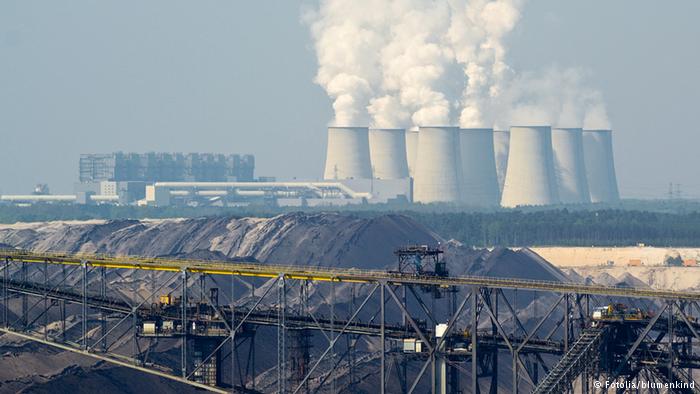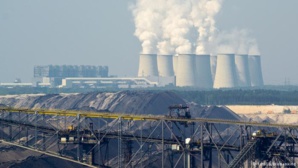The world energy market has changed over the last year with unprecedented speed - analysts of British energy group BP came to the conclusion. The head of the group, Bob Dudley said that after a lull came "storm". The main thing that made up this situation - "changing of the guard" in the list of leading countries, energy producers and reducing the need for energy resources of the world economy. World economic growth in 2014 has continued, but with a sharp slowdown in energy consumption. It is, according to estimates of analysts group, grew by only 0.9 percent per year. Growth fell, compared with long-term average data twice.
This affected primarily oil, gas and especially coal, and it is typical for most regions of the world. Although primarily, BP analysts point to slowing economic growth in China. And in 2014, for sure, there will be no exception in the current tendency to reduce the growth of energy consumption in China, according to BP chief analyst Spencer Dale. The Chinese authorities relied on to make the economy less energy-intensive and reduce the consumption of fossil energy sources.
Although the oil generally remained the leading source of energy in the world (32.6 per cent), its share of global energy consumption in 2014 fell - a trend that has not changed for 15 years in a row. Also we are sharply losing ground charcoal (30 percent). The increase of consumption in the past year, according to BP estimates, amounted to only 0.4 per cent, while in the previous 10 years, the average value was 2.9 percent. 2014 was not really god for the gas market too - the volume of trade in the world fell by 3.4 percent.
The historic collapse of gas consumption in Europe
Other "tectonic shift" - a sharp growth despite the gloomy predictions of energy production in the United States and Canada, primarily due fracking that led to the fact that the United States took the first place in oil and gas, overtaking, respectively, Saudi Arabia and Russia. "The world has witnessed the changing of the guard", - commented this fact Spencer Dale from BP.
Solar and wind energy can no longer be underestimated
But the "tectonic shifts" do not stop, BP experts say. The world has gradually come closer to the goal, as desired by the majority of environmentalists: to produce more energy through sources with low CO2 emissions. As a result, we were almost able to stop the growth of emissions of carbon dioxide in the world: it was, according to estimates BP, only about 0.5 percent in 2014.
The share of renewables in the global energy consumption amounted to 3 per cent, it is three times higher than a decade ago. Only the production of electricity using solar panels has grown by 38.2 percent. Production of electricity from renewable sources markedly increased by 12 percent over the past year, reaching a share of 6 percent of the total electricity production. The leader of this trend is China, where the fifth consecutive year recorded an increase in the relevant capacity (over 15 per cent in 2014).
source: dw.de
This affected primarily oil, gas and especially coal, and it is typical for most regions of the world. Although primarily, BP analysts point to slowing economic growth in China. And in 2014, for sure, there will be no exception in the current tendency to reduce the growth of energy consumption in China, according to BP chief analyst Spencer Dale. The Chinese authorities relied on to make the economy less energy-intensive and reduce the consumption of fossil energy sources.
Although the oil generally remained the leading source of energy in the world (32.6 per cent), its share of global energy consumption in 2014 fell - a trend that has not changed for 15 years in a row. Also we are sharply losing ground charcoal (30 percent). The increase of consumption in the past year, according to BP estimates, amounted to only 0.4 per cent, while in the previous 10 years, the average value was 2.9 percent. 2014 was not really god for the gas market too - the volume of trade in the world fell by 3.4 percent.
The historic collapse of gas consumption in Europe
Other "tectonic shift" - a sharp growth despite the gloomy predictions of energy production in the United States and Canada, primarily due fracking that led to the fact that the United States took the first place in oil and gas, overtaking, respectively, Saudi Arabia and Russia. "The world has witnessed the changing of the guard", - commented this fact Spencer Dale from BP.
Solar and wind energy can no longer be underestimated
But the "tectonic shifts" do not stop, BP experts say. The world has gradually come closer to the goal, as desired by the majority of environmentalists: to produce more energy through sources with low CO2 emissions. As a result, we were almost able to stop the growth of emissions of carbon dioxide in the world: it was, according to estimates BP, only about 0.5 percent in 2014.
The share of renewables in the global energy consumption amounted to 3 per cent, it is three times higher than a decade ago. Only the production of electricity using solar panels has grown by 38.2 percent. Production of electricity from renewable sources markedly increased by 12 percent over the past year, reaching a share of 6 percent of the total electricity production. The leader of this trend is China, where the fifth consecutive year recorded an increase in the relevant capacity (over 15 per cent in 2014).
source: dw.de






